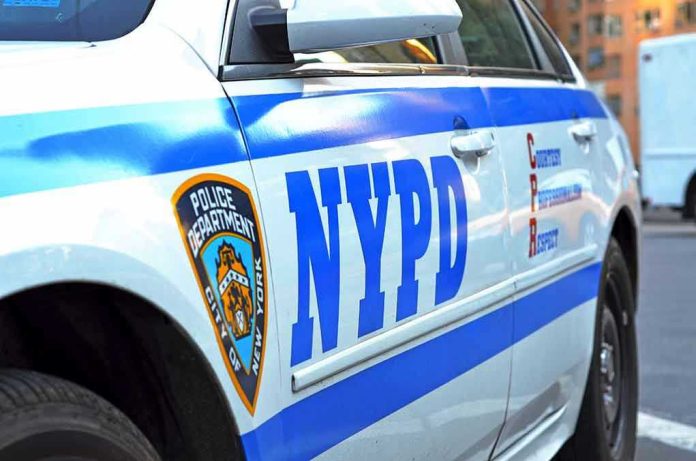
What happens when those tasked with upholding the law have histories of breaking it? The NYPD is finding out the hard way.
At a Glance
- Over 30 NYPD officers were hired despite criminal backgrounds.
- Inspector Terrell Anderson is under investigation for the illegal hires.
- The scandal raises questions about oversight and accountability.
- Potential reforms in recruitment and hiring practices are on the horizon.
NYPD’s Unprecedented Hiring Scandal
The New York City Police Department (NYPD), known for its rigorous hiring standards, finds itself in hot water after revelations surfaced that more than 30 individuals with criminal histories were recruited as officers. This scandal came to light following an internal investigation that pointed the finger at Inspector Terrell Anderson, the NYPD’s former recruitment chief. Anderson is accused of bypassing critical background checks and endorsing candidates who failed psychological and character evaluations. This breach of trust has prompted a deeper examination of the NYPD’s hiring protocols.
The scandal couldn’t have emerged at a more critical time. With ongoing national debates about police accountability and recruitment standards, the NYPD’s blunder has intensified calls for reform. The department’s traditional hiring process involves multiple layers of scrutiny, including psychological assessments and background checks. Yet, Anderson’s alleged manipulation has undone years of effort to maintain public trust and integrity within the force.
Key Players and Their Roles
At the heart of this controversy is Inspector Terrell Anderson, whose motivations for overriding disqualifications remain unclear. Was it pressure to meet recruitment targets, or was there another agenda at play? The NYPD leadership now faces the daunting task of regaining public trust while scrutinizing its internal processes. The City of New York, tasked with overseeing the NYPD, must also address community concerns about law enforcement integrity.
Beyond the department, police unions and advocacy groups are gearing up to either condemn or defend the actions taken. Meanwhile, the community’s skepticism grows as they grapple with the implications of having potentially compromised individuals patrolling their streets.
Unraveling the Impact
The immediate fallout is palpable. Public trust in the NYPD’s hiring practices has been shaken, with potential legal and disciplinary actions looming over those involved. This situation demands a reevaluation of recruitment and vetting procedures, not just for the NYPD but potentially for police departments nationwide. In the long run, these revelations might catalyze broader policy reforms aimed at enhancing transparency and accountability in law enforcement hiring.
For New York City residents, particularly those in communities with historically strained relations with the police, this scandal is yet another blow to their confidence in public safety. The economic implications, including costs associated with investigations and possible lawsuits, add another layer of complexity to the already volatile situation.
Expert Insights and Future Directions
Experts like former NYPD lieutenant Darrin Porcher have weighed in on the breach, describing the standard hiring process as comprehensive and rigorous. The fact that such a lapse occurred signals a significant breakdown in oversight. While the motivations behind Inspector Anderson’s actions remain speculative, systemic pressures like recruitment quotas and staffing shortages might have contributed to the oversight.
Credible news sources, along with official court documents, have substantiated the claims against the NYPD, adding weight to the urgent need for reform. As the investigation continues, the NYPD must confront this scandal head-on, ensuring that future recruitment processes are foolproof and transparent.
Sources:
CBS News New York, July 11, 2025
New York City Police Benevolent Association, July 15, 2025



